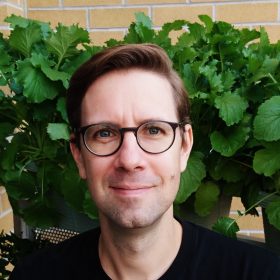
Darius Ornston
Associate Professor, Munk School of Global Affairs & Public Policy
1 Devonshire Place, Room 359S
Darius Ornston is Associate Professor at the Munk School of Global Affairs & Public Policy at the University of Toronto where he specializes in the politics of cooperation and change. An expert in Nordic innovation policy, his first book, When Small States Make Big Leaps, illustrates how those communities use cooperation to enter new, high-technology markets. In Good Governance Gone Bad, he demonstrates how the same, tight-knit networks which accelerate reform and restructuring can lead to policy overshooting, overinvestment, and economic crisis.
Since moving to Canada, his research has focused on Canadian cities, including their resilience to anchor firm collapse and the role of storytelling as a form of collective action. His research on the causes and consequences of cooperation has been published by Comparative Political Studies, Comparative Politics, Economic Geography, the European Bank for Reconstruction and Development, Governance, the OECD, Review of Policy Research, the University of Michigan Press, and West European Politics.
With Dan Breznitz, Professor Ornston is also working on the design of innovation agencies and strategies to encourage risk-taking and experimentation in the public sector. Their research on radically innovative developmental agencies has appeared in Comparative Political Studies, Industrial & Corporate Change, and Socio-Economic Review.
As part of the Munk School’s Master of Global Affairs program, Professor Ornston teaches one section of “Global Innovation Policy” as well as three second-year seminars. In “The Political Economy of the Welfare State” students develop strategies for reforming big, slow-moving, highly politicized institutions. “The Political Economy of Trade” focuses on the ways smaller states circumvent the constraints associated with the global trading system. “Innovation and the City” examines the tools fiscally constrained local policymakers can use to shape innovation and regional economic development.
